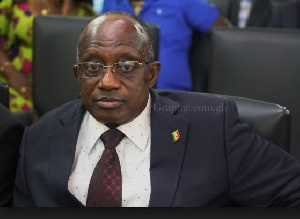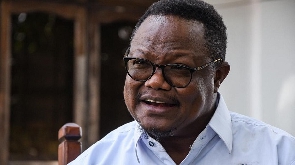Mr Simon Osei Mensah, Ashanti Regional Minister, has called for stiffer punishment for heads of public institutions and individuals who deliberately engage in fraudulent activities on the government payroll.
He said people who insert unapproved names into government payroll and use fraudulent means to receive salaries from the government at the end of every month, should be treated as criminals, whose interest is to wreck the nation for their personal gains.
Speaking at the Ashanti regional launch of the nationwide payroll and personnel verification audit in Kumasi, Mr Osei Mensah said it is time the Auditor General (AG) instituted far-reaching punitive measures to check corruption on government payroll.
The 10-day exercise which is expected to end by November 23rd will headcount all public servants and other employees who are on the Government of Ghana payroll.
The Regional Minister said the current situation where the AG just surcharged people who misappropriated or embezzled public funds, was not deterrent enough and that was why people continue to steal state funds with impunity.
He said the AG should see the so called “ghosts” in government payroll as thieves and deal with them as criminals and proffer appropriate sanctions against such criminals.
Mr Osei Mensah called on all public sector workers to cooperate with officers from the Audit Service to ensure the success of the exercise in the region.
Mr Daniel Yaw Domelevo, the Auditor General, said the verification exercise was to help clean the government payroll of all those names which were not supposed to be there.
He said the exercise would not only provide accurate data for government employees but, would also help identify those who were above the mandatory retirement age and were still in service.
“We are at the same time, creating opportunities to employ young people to fill vacant positions and improve wages and salaries of government workers,” he added.
Mr Domelevo urged government employees to see the exercise as a serious national issue and avail themselves and the requisite verification documents to effect the necessary changes and avoid any conflict situations.
Dr Saani Abdulai, Coordinator of the Public Financial Management (PFM) Project, said about 45 per cent of the country’s revenue was used to pay public sector workers.
He said the exercise was part of the PFM project to ensure that those who received salaries from government were actually working for the state.
General News of Tuesday, 13 November 2018
Source: ghananewsagency.org













